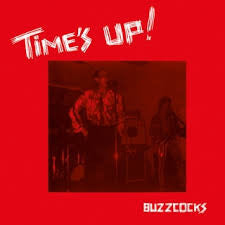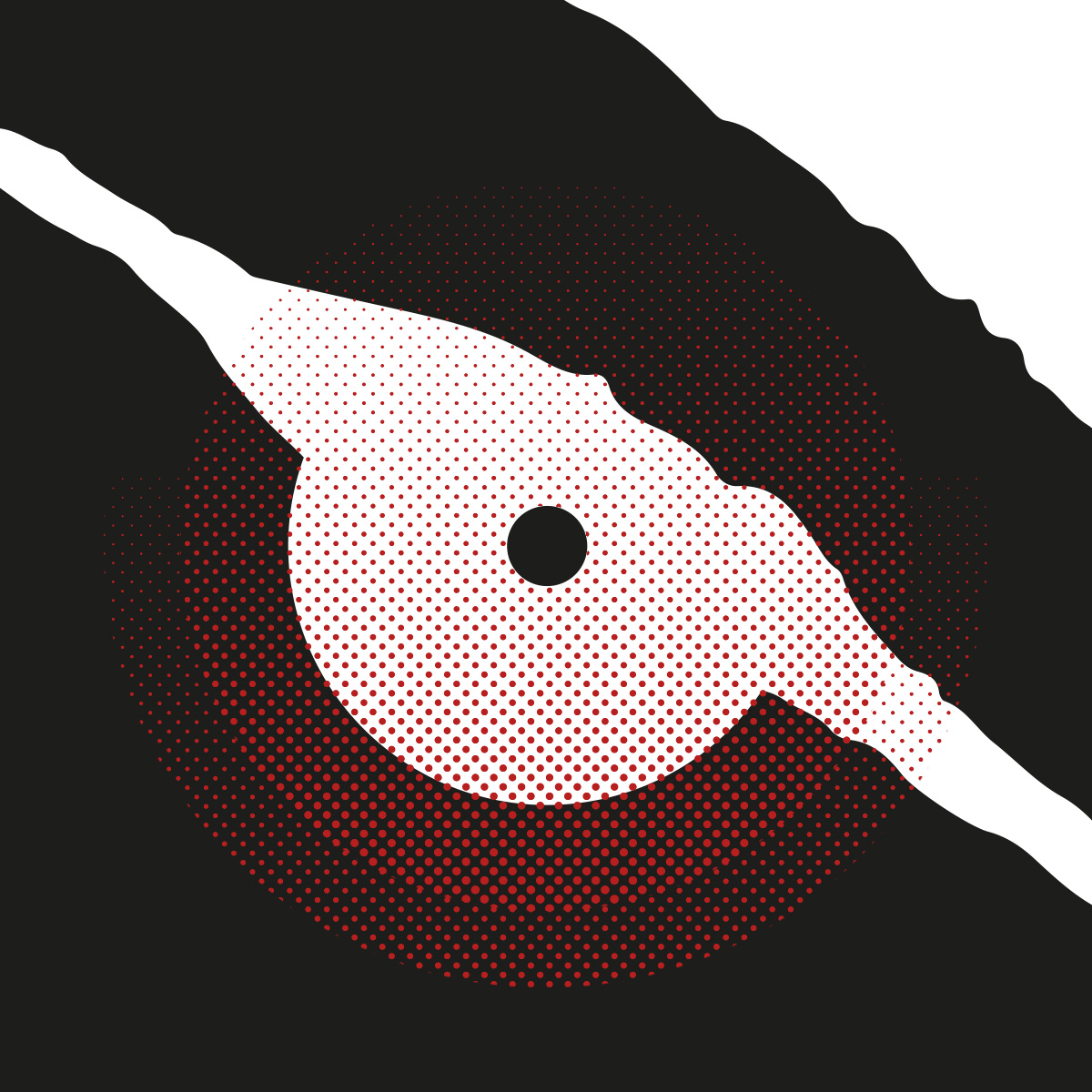
Domino
BUZZCOCKS - Time's Up! LP
$36.95
Includes d/l code.
180 gram.
Highly recommended.
In 1981, with disco medleys of former pop hits like “Stars on 45” climbing the charts around the world, a cluster of British punk rockers recorded their own medley of old favorites. The Friendly Hopefuls’ Tribute to the Punks of ’76 begins with the standard looped clap track and a slick, professional-sounding chorus singing: “Hey hey/Remember that day / In 1976 / When the music scene was boring / Until along came - this!” And the guitar riff from the Buzzcocks’ “Boredom” kicks in.
Spiral Scratch - the four-song debut EP on which “Boredom” appeared - was a revelation. British punk rock was brand new at that point: when Spiral Scratch was released on January 29, 1977, the Sex Pistols’ “Anarchy in the U.K.” was barely two months old, the Damned, the Vibrators, and the Stranglers had some singles out, and that was it. All those bands were signed to at-least-sort-of-legitimate record labels. Meanwhile, the Buzzcocks scraped together the funds to have 1000 copies of Spiral Scratch pressed themselves, and called their otherwise nonexistent label New Hormones.
The masterminds behind the band at that point - singer/guitarist Howard Devoto and guitarist Pete Shelley - weren’t Londoners like the earliest wave of UK punks. They were from unfashionable Manchester, a couple of hours’ train ride north. In the fall of 1975, Devoto and Shelley read about the Sex Pistols, traveled down to London to see them, and came back inspired to start a band of their own. The Buzzcocks’ first complete set was opening for the second of two legendary Pistols shows in Manchester during the summer of 1976.
Time’s Up - initially a bootleg in 1978, and officially released in 1991 - is an invaluable document. It's the demo Buzzcocks recorded on October 18, 1976 - all snarls, yelps, and distortion, while also sounding entirely joyful. They revel in rock bands’ newly-won right to present themselves as mean and aggressive and to say "fuck" out loud. Devoto sings as if Johnny Rotten is the only other vocalist he’s ever heard, and always seems about to break into giggles. “You tear me up, you bloody swine!” he yells with adenoidal delight. “Orgasm Addict,” which they’d re-record as a single a year later, isn’t quite fully formed yet, but Devoto’s rhymes about stained jeans, as well as his whining gasps, were genuinely transgressive for their moment.
The band is still finding its feet on Time’s Up, especially as teenage drummer John Maher slowed down the tempo every time he attempted to play a fill. Still, they worked out how to vigorously shove their songs forward. The two covers that were part of their live set at the time revealed a bit about where Buzzcocks were coming from: A sped-up version of the Troggs’ “I Can’t Control Myself” anticipates the love of popcraft that would shortly surface in their own songs and a heavily rewritten take on Captain Beefheart’s “I Love You, You Big Dummy” (which Devoto would take with him to his subsequent band Magazine) hints at the odder, artier side of their later records.
Two months after the Time’s Up demos, they re-recorded four of those songs with producer Martin Hannett as Spiral Scratch. A few more weeks of practice had done wonders for the Buzzcocks’ sound: now they were fast, strong and acrobatically tight. They powered through “Breakdown” in two minutes flat and started to sound more like themselves than like the Pistols or the Ramones. In fact, the Ramones would ape the two-note guitar solo gag in “Boredom” for their own on “I Wanna Be Sedated.”
The great joke of Devoto’s performance here is that, on the first record by a new band at the vanguard of a new musical movement, he presents himself as utterly over everything—including punk in general. “I’m already a has-been,” he sneers. “You know the scene is - very humdrum!” He wasn't kidding because less than a week after Spiral Scratch’s release, Devoto quit the Buzzcocks, and Shelley took his place as the band’s frontman.
By the time they stopped re-pressing the EP in the summer of 1977, Buzzcocks had sold 16,000 copies of it. In its way, Spiral Scratch was at least as important to punk as the Sex Pistols’ rise, because it was the first record of its kind to erase the axioms that the art and business of pop music were necessarily separate, and that a band could never be important until it signed to a “real” record label. Buzzcocks said fuck it and decided to just do it themselves.
180 gram.
Highly recommended.
In 1981, with disco medleys of former pop hits like “Stars on 45” climbing the charts around the world, a cluster of British punk rockers recorded their own medley of old favorites. The Friendly Hopefuls’ Tribute to the Punks of ’76 begins with the standard looped clap track and a slick, professional-sounding chorus singing: “Hey hey/Remember that day / In 1976 / When the music scene was boring / Until along came - this!” And the guitar riff from the Buzzcocks’ “Boredom” kicks in.
Spiral Scratch - the four-song debut EP on which “Boredom” appeared - was a revelation. British punk rock was brand new at that point: when Spiral Scratch was released on January 29, 1977, the Sex Pistols’ “Anarchy in the U.K.” was barely two months old, the Damned, the Vibrators, and the Stranglers had some singles out, and that was it. All those bands were signed to at-least-sort-of-legitimate record labels. Meanwhile, the Buzzcocks scraped together the funds to have 1000 copies of Spiral Scratch pressed themselves, and called their otherwise nonexistent label New Hormones.
The masterminds behind the band at that point - singer/guitarist Howard Devoto and guitarist Pete Shelley - weren’t Londoners like the earliest wave of UK punks. They were from unfashionable Manchester, a couple of hours’ train ride north. In the fall of 1975, Devoto and Shelley read about the Sex Pistols, traveled down to London to see them, and came back inspired to start a band of their own. The Buzzcocks’ first complete set was opening for the second of two legendary Pistols shows in Manchester during the summer of 1976.
Time’s Up - initially a bootleg in 1978, and officially released in 1991 - is an invaluable document. It's the demo Buzzcocks recorded on October 18, 1976 - all snarls, yelps, and distortion, while also sounding entirely joyful. They revel in rock bands’ newly-won right to present themselves as mean and aggressive and to say "fuck" out loud. Devoto sings as if Johnny Rotten is the only other vocalist he’s ever heard, and always seems about to break into giggles. “You tear me up, you bloody swine!” he yells with adenoidal delight. “Orgasm Addict,” which they’d re-record as a single a year later, isn’t quite fully formed yet, but Devoto’s rhymes about stained jeans, as well as his whining gasps, were genuinely transgressive for their moment.
The band is still finding its feet on Time’s Up, especially as teenage drummer John Maher slowed down the tempo every time he attempted to play a fill. Still, they worked out how to vigorously shove their songs forward. The two covers that were part of their live set at the time revealed a bit about where Buzzcocks were coming from: A sped-up version of the Troggs’ “I Can’t Control Myself” anticipates the love of popcraft that would shortly surface in their own songs and a heavily rewritten take on Captain Beefheart’s “I Love You, You Big Dummy” (which Devoto would take with him to his subsequent band Magazine) hints at the odder, artier side of their later records.
Two months after the Time’s Up demos, they re-recorded four of those songs with producer Martin Hannett as Spiral Scratch. A few more weeks of practice had done wonders for the Buzzcocks’ sound: now they were fast, strong and acrobatically tight. They powered through “Breakdown” in two minutes flat and started to sound more like themselves than like the Pistols or the Ramones. In fact, the Ramones would ape the two-note guitar solo gag in “Boredom” for their own on “I Wanna Be Sedated.”
The great joke of Devoto’s performance here is that, on the first record by a new band at the vanguard of a new musical movement, he presents himself as utterly over everything—including punk in general. “I’m already a has-been,” he sneers. “You know the scene is - very humdrum!” He wasn't kidding because less than a week after Spiral Scratch’s release, Devoto quit the Buzzcocks, and Shelley took his place as the band’s frontman.
By the time they stopped re-pressing the EP in the summer of 1977, Buzzcocks had sold 16,000 copies of it. In its way, Spiral Scratch was at least as important to punk as the Sex Pistols’ rise, because it was the first record of its kind to erase the axioms that the art and business of pop music were necessarily separate, and that a band could never be important until it signed to a “real” record label. Buzzcocks said fuck it and decided to just do it themselves.




